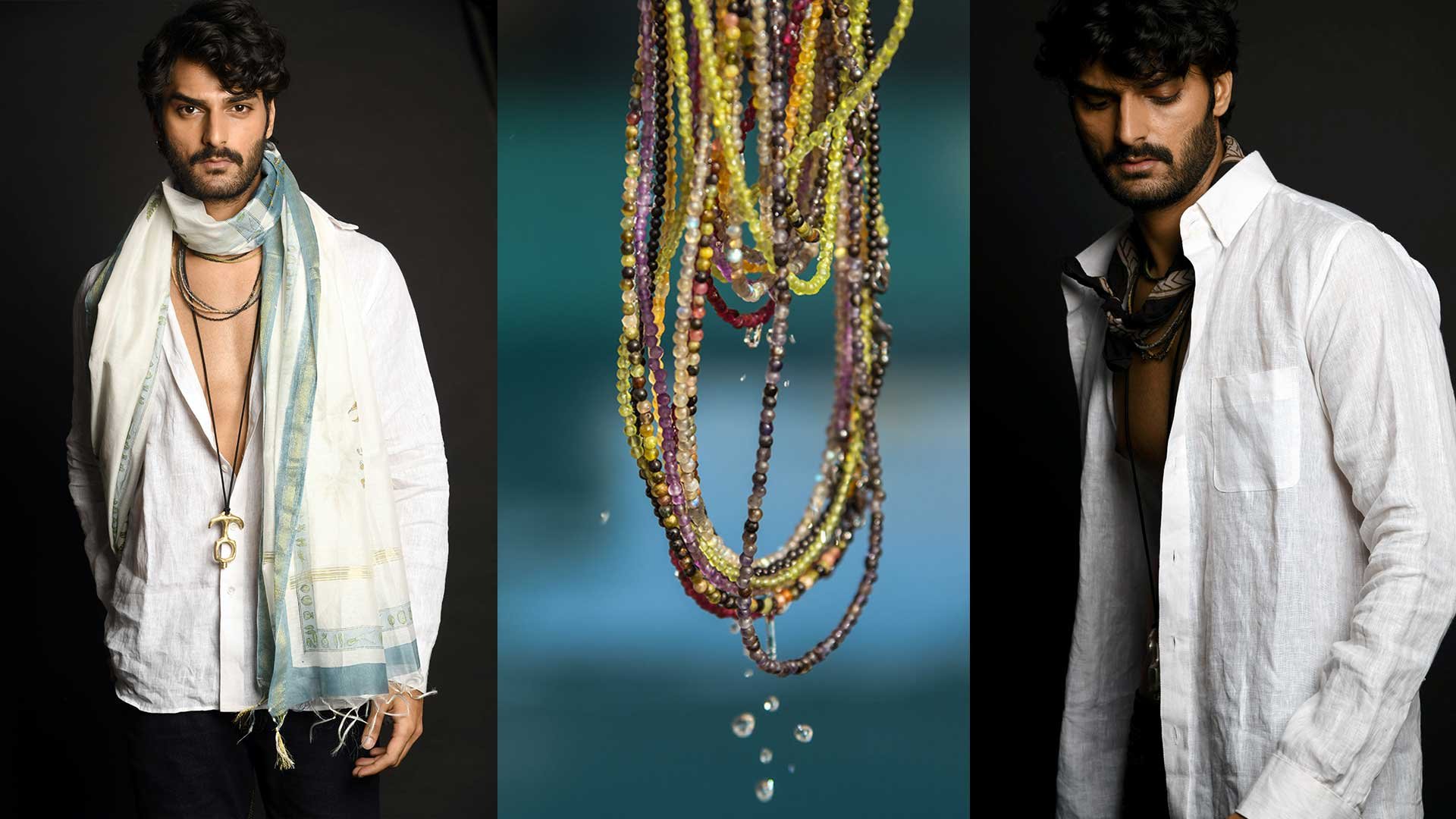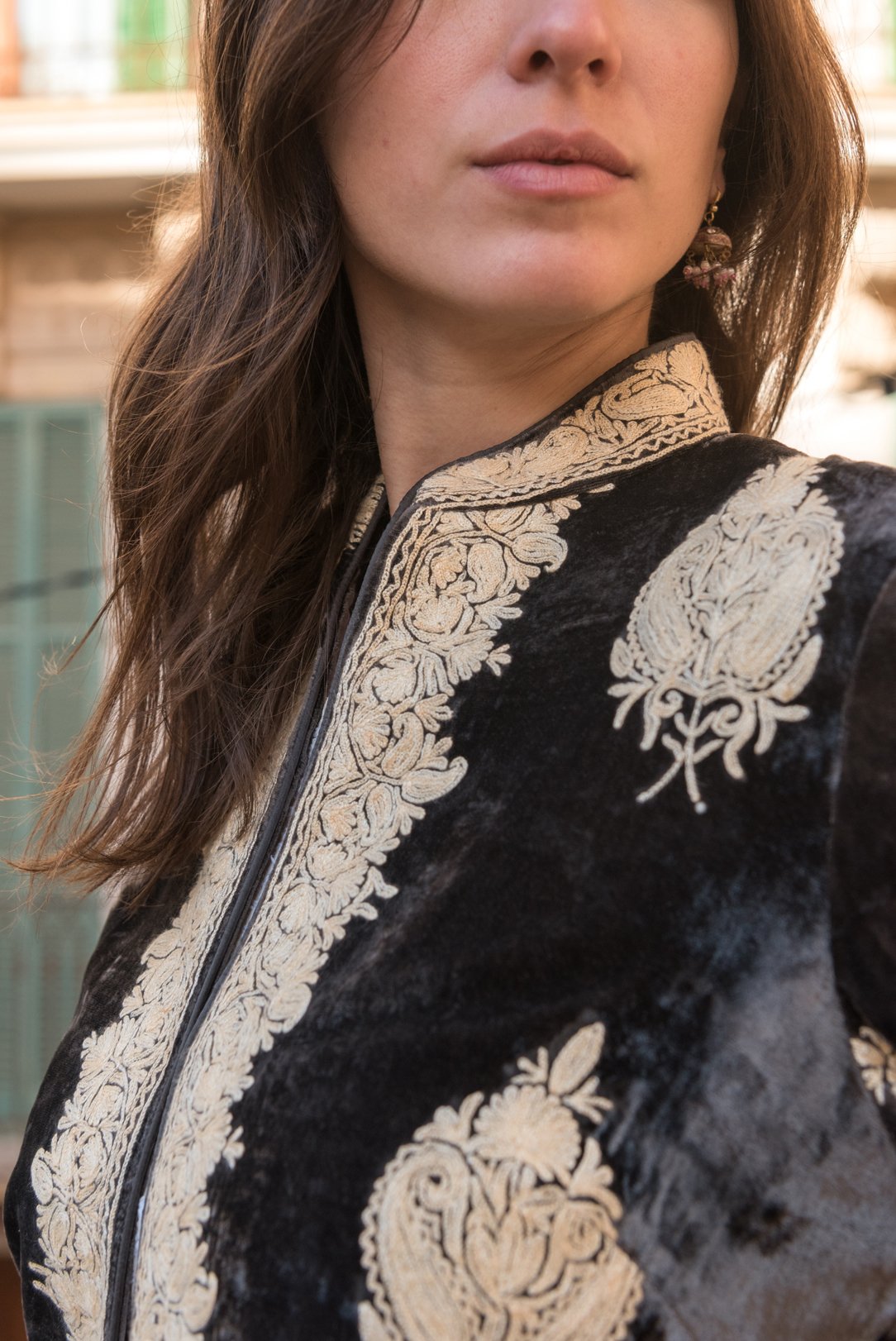
Calling all Designers
Jaipur Creators Week
10 x 10
Create a 10-Piece Capsule Fashion, Home or Jewelry Collection—and Launch Your Retail Business in 10 Days
Help us support differentiated crafts and start crafts-based micro-businesses all over the world.
At Jaipur Creators Week you'll develop a 10-piece capsule collection in 10 days on-site in Jaipur after planning with a dedicated project manager for the previous 7 weeks.
We provide the tools you need to launch your fashion brand. You'll have the advantage of direct maker relationships and continuing with your Project Managers for production, when ready. You'll also gain invaluable experience working with traditional Indian crafts and artisans. This immersive program allows you to blend centuries-old techniques with contemporary design, resulting in distinctive, quality collections.
Jaipur Creators Week
#10x10
Create a 10-Piece Fashion, Jewelry, or Home Goods Collection in 10 Days
Design, sample, and refine your capsule collection through 7 weeks of remote collaboration and a 10-day immersive experience in Jaipur. Work alongside expert project managers and master artisans to bring your vision to life.
What You’ll Take Away
A polished 10-piece capsule collection
Professional product photography
Comprehensive production assets: patterns, tech packs, and sized toiles
A traced, crafts-based supply chain compliant with the EU's Digital Product Passport requirements, and California's Australia's Green Deals
Direct relationships with artisan makers and long-term production partnerships
Training in retail, e-commerce, and small-scale production
7 Weeks Before Arrival: Design & Development
Collaborate remotely with a Project Manager trained at IICD—India’s premier craft and design institute. Over seven weeks, your PM will work part-time to assist you to:
Finalize collection designs
Develop patterns, tech packs, and toiles
Plan custom processes like textile design, block cutting, small print runs, hand embellishments, jewelry design, and stone selection
Sourcing materials and overseeing sample production
Note: The PM's time is included; designers cover material and sample costs.
In Jaipur: 10 Days to Refine and Approve
Upon arrival, your collection samples will be ready. During the 10-days on-site, you’ll:
Review and adjust your collection
Collaborate with craftspeople and your PM to make refinements
Participate in professional photography of the finished work
Prepare for launch—online or in-store
Optional Marketing ToolsProfessional Photography: For an additional fee, you can get 10 model photos, and a short video. Scheduled for day 9 or 10.
Pricing set per session depending on the number of models hired, but the range is $500-$800 2 model views of each design including hair, make-up, studio fees, photographer fees (unlimited usage) and standard retouching.
E-commerce Website: A 10-product Shopify site with language translations is available for $2500.
Why Jaipur?
Jaipur is a living ecosystem of enduring, heritage crafts—including hand block printing, natural dyeing, hand embroideries, custom embellishments, and fine jewelry-making. These skills are increasingly rare outside of India. This program provides insider access to this crafts ecosystem—connections and expertise that would take years to develop independently.




2025-2026 Dates
July: 5-15, 2025
— Inaugural Summer Session. Register by May 3rd.
August: 9-19, 2025
— Last Summer Session. Register by June 5th.
July: 19-29, 2025
— 2nd Summer Session. Register by May 17th.
September: 13-23, 2025
— Early Fall Session. Register by July 12th.
October: 11-21, 2025
— 1st Fall Session. Register by August 30th.
December 13-23, 2025
— 1st Winter Session. Registration Date TBD.
November: 22-December 2, 2025
— 2nd Fall Session. Register by September 4th.
January 3-13, 2026
— 2nd Winter Session. Registration Date TBD.
February 14-24, 2026
— Early Spring Session. Registration Date TBD.
March 7-17, 2026
— Spring Session. Registration Date TBD.
Sessions require a minimum of 5 designers, (with 12 maximum).
Payments: 50% at registration | 25% 20 days before start dates | 25% upon arrival.
If fewer than 5 designers sign-up we reserve the right to cancel your registration and refund your deposits.
We’re working on the list of full Terms and Conditions
Reserve Your Spot
Everything you need to start a fashion, jewelry or home goods business in a 10 days. On-site in Jaipur, India.
Creators Week is a project of the Jaipur Crafts Festival.
We started Jaipur Creators Week to support heritage crafts and artisan makers in India. Lots of people want the same—but we're interested in the formal aspects of market repair.
In 2018, we returned to India after a long hiatus and became accidental crafts researchers because a meter of handwoven, indigo-dyed fabric cost the same everywhere. That breaks basic market logic, where there's usually a relationship between price and quality. These fabrics had different cotton, different weaving, and different indigo. Why the flat pricing, which is generally for commodities like copper and oil?
The full story is, here.
Why Start Jaipur Creators Week?
That question led us to Structural Market Analysis of Indian handwovens. Crafts were broken on four out of five—maybe five out of five—functions of working markets. We founded the Jaipur Crafts Festival and built a crafts differentiation strategy to activate change. That led to Weave3 and Economy3.
Creators Week is part of that differentiation strategy. Joining us helps on market repair dimensions of:
Complete Information
Absence of Externalities
Public Interest
Joining us helps solve the "cold-start" problem for our Web3 tracing solutions, too.



